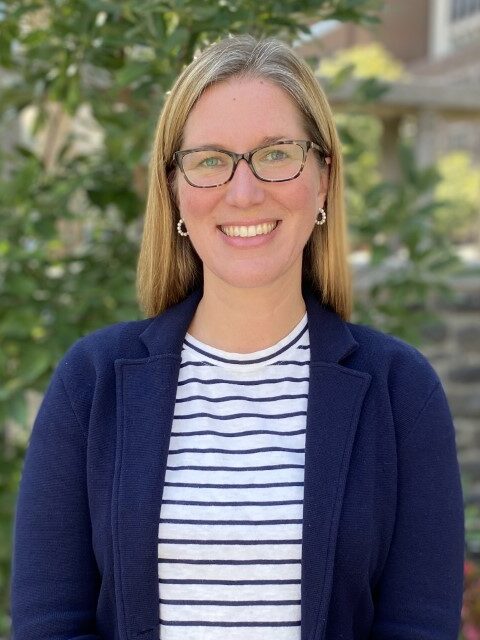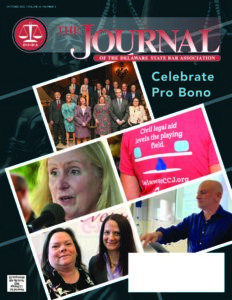Entering my senior year of college, I knew that I wanted a career working for social justice and thought I would likely pursue a graduate degree in social work or public policy. I had never considered becoming a lawyer. Like many people, most of my knowledge about lawyers came from television, so I only had a vague sense of what a “legal aid lawyer” was.
That changed soon after graduation, when I moved to the Bronx and began working as a community organizer in low-income housing developments. I met with tenants who faced crumbling buildings and evictions without proper notice. They showed me the awful conditions they had to endure, including toxic mold, raw sewage leaks, no heat or hot water in winter, and rat infestations. The tenants and I repeatedly contacted their building owners and city inspectors only to be ignored, and in one case we were locked out of the building’s community room when we tried to organize a tenant association to demand repairs.
That’s when a colleague suggested we reach out to a legal aid lawyer. The lawyer took the time to listen to the tenants and understand their goals, to build their trust and seek their input at every turn, and work with them as a true partner. Combining the tenants’ organizing efforts with his legal expertise swiftly led to repairs at the buildings and helped families remain in their homes. As I saw the profound impact that this kind of community lawyering could have—developing tenants’ power at the grassroots level to enforce their rights—I began seriously considering a career in legal aid.
I then went to work at a legal clinic for the homeless run by the New York City Bar Association. At city intake centers, I met families with small children sitting on trash bags filled with their possessions. Time and again I saw these families being wrongfully denied shelter until legal aid lawyers intervened. I worked with families in the shelter system who were repeatedly denied the medical, food, and cash assistance they desperately needed because they didn’t know their rights and had problems navigating multiple complex bureaucratic systems on their own. Fortunately, I also had the privilege of working alongside passionate lawyers who cared deeply about these families and advocated fiercely and successfully for them, which solidified my decision to attend law school.
After graduating from Boston College Law School, I completed a judicial clerkship and was lucky to be awarded a Skadden public interest fellowship that launched my legal aid career. I spent two years at Greater Boston Legal Services doing outreach and representing youth with physical and mental disabilities aging out of the foster care system. These youth rarely received legal assistance—they turned 18, aged out of foster care, and faced a sudden loss of social and economic support that often resulted in homelessness. I educated them about their rights and helped them access health insurance and disability benefits, which allowed them to stabilize their health, secure housing, and attend school or work.
I then went to MetroWest Legal Services and expanded my practice to assist a wide range of low-income people who were improperly denied or terminated from emergency shelter, health insurance, food stamps, unemployment, and disability benefits. My legal aid colleagues and I also worked for systemic change through impact litigation and policy advocacy to help more people than we were able to assist at an individual level.
I became a legal aid lawyer to help ensure that everyone has the same access to justice regardless of socioeconomic status. Every day people cannot enforce their most basic rights because they are not able to afford a lawyer. I am continuously struck by the vast disparities that exist between laws as written and as actually implemented in the lives of low-income and vulnerable people, whether it is a family denied heat in winter or notice before an eviction, or a person with mental illness denied disability benefits because the very illness that qualifies them also prevents them from being able to understand and enforce their rights.
Good laws might exist to protect people, but when they don’t have access to legal assistance, those laws might as well not be on the books. Legal aid lawyers have the opportunity and privilege to transform legal promises from mere words into concrete improvements in the lives of poor and marginalized people, and to empower them at the grassroots level to create systemic change. Unfortunately, due to lack of funding, there is a huge “justice gap” between the number of lawyers available and the number of people requiring assistance.
I am so grateful to have had a career where I could engage in this work, and am thrilled to be taking on a new role as communications and marketing director at Community Legal Aid Society, Inc. (“CLASI”) to help raise awareness about the issues facing our clients and the incredible work our attorneys and advocates do each day. I look forward to partnering with the Combined Campaign for Justice, Delaware Volunteer Legal Services, and Legal Services Corporation of Delaware, Inc. as we work together to close the justice gap in Delaware.


